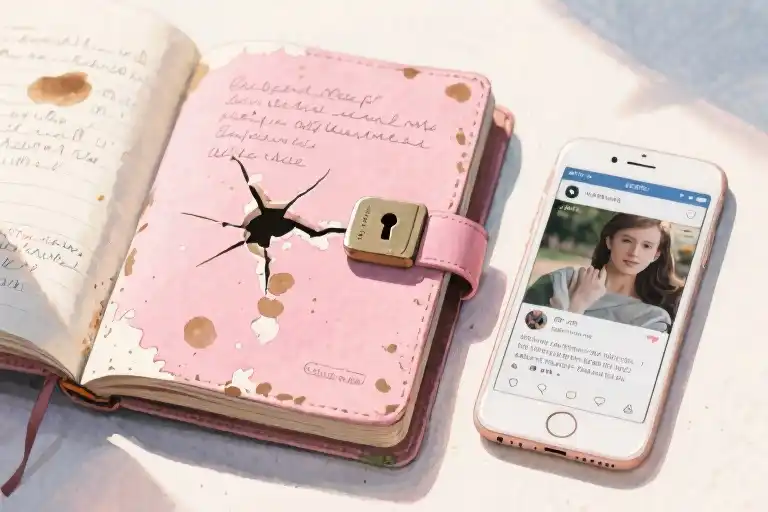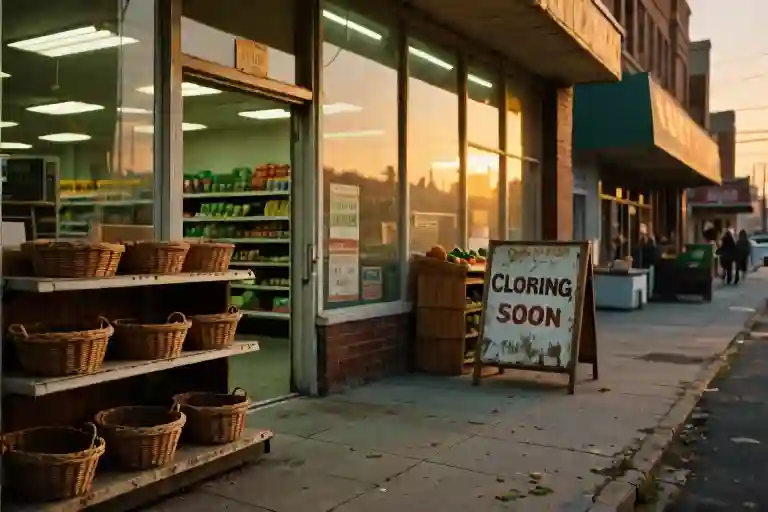The brass key stuck for a second before turning, that tiny resistance like memory itself refusing to yield. At 2:17 AM on a Tuesday, my childhood diary lay open on the coffee table, its pages exhaling the scent of strawberry-scented highlighters and middle school desperation. My fingers traced the indentations where thirteen-year-old me had pressed too hard with her gel pen, entire paragraphs dedicated to dissecting his Myspace song lyrics—every ‘he’ underlined twice in a way that now made my throat tighten with secondhand embarrassment.
What surprised me wasn’t the cringe-worthy prose, but the pencil marks flanking each passage. Neat vertical lines drawn years later by some wiser version of myself, like a museum curator labeling artifacts: Here lies the girl who thought love letters should include Wi-Fi passwords. The most damning annotation appeared beside a feverish description of our ‘almost brush of hands’ near the lockers—This never happened in crisp block letters, the graphite sharp enough to dent the paper.
Moonlight from the apartment window caught the diary’s security features—that flimsy lock I’d trusted with state secrets, the ‘KEEP OUT!!!’ warning on the cover now warped by some long-ago water bottle leak. The last page held my greatest teenage rebellion: a list titled Reasons He’ll Notice Me, number seven simply reading exist??? with three question marks that still looked hopeful. Underneath, in fresh blue ink from last month’s random impulse, I’d added: Turns out the person worth noticing was you.
Outside, a garbage truck beeped its way down the street, the sound syncing with my scrolling through that ancient Facebook account on my phone. Two parallel excavations—one analog, one digital—both revealing the same truth: we don’t outgrow our past selves so much as learn to read them in translation.
The Warmth in Those Faded Ink Marks
The diary smelled of vanilla and something faintly metallic—probably the old gel pen I’d used to chronicle every flutter of my teenage heart. Three particular entries still glow in my memory, their edges softened by years but their emotional weight intact.
Memory One: The Physics Notebook Incident
I’d drawn tiny hearts around his name where it appeared in our class seating chart, pressing so hard the paper fibers split. Beneath it now, my thirty-year-old self scribbles in red ink: Turns out Coulomb’s Law was more enduring than this crush. Still, A for artistic effort.
Memory Two: The Rainy Bus Stop
Two whole pages described how he’d almost shared his umbrella. Reading it now, I count seven exclamation points and the phrase “his sleeve brushed mine” repeated like a mantra. My present-day margin note: FYI—he was definitely avoiding puddles, not creating romance.
Memory Three: The Birthday Paradox
A meticulously planned “accidental” hallway meeting, foiled when he called in sick. My younger self had theorized cosmic interference. Current me adds: Statistically speaking, teenage immune systems are the real heartbreakers.
Flipping to the back cover, I find the unexpected punchline—a note in my own handwriting but with decidedly adult cynicism: This notebook survived six moves, two floods, and outlasted every relationship described within its pages. The paper had indeed held up better than the fantasies it contained.
What surprises me isn’t the intensity of those past emotions, but how they’ve fossilized into something valuable yet weightless. Like pressing flowers between phone books, I’d preserved not the boy himself, but the exhilarating act of paying attention—to details, to possibilities, to the version of myself who found wonder in such ordinary moments.
The diary’s final blank page holds one more revelation: a coffee ring from this morning’s reading session. The stain overlaps perfectly with a long-ago ink smudge, as if past and present had finally shaken hands.
The Dreamer Who Wrote for Phone Credit
The notification chimed at 3:17 AM – not the competition results I’d been refreshing my inbox for, but a Facebook message from someone named Claire. ‘Your story about the girl who collects bus transfer slips made me cry in the college library,’ it began. My fingers hovered over the keyboard, still tingling from hours spent crafting that submission for the ‘Urban Tales’ contest where first prize was 50,000 IDR phone credit.
Two months earlier, I’d composed my first entry for ‘Teen Writers’ Challenge’ with trembling hands. The prompt demanded ‘a life-changing moment in 500 words.’ I wrote about spilling coffee on my crush’s textbook, fabricating details about how the stain formed a perfect heart shape. When the form rejection arrived (‘We received many quality submissions…’), I noticed it was addressed to ‘Dear Participant’ with my name pasted awkwardly in the wrong font size. That template email taught me my first lesson about writing communities – the warmth would never come from the organizers, but from fellow dreamers like Claire.
Her message continued: ‘The way you described the bus driver’s chipped nail polish noticing her collection – it’s the kind of detail real writers see.’ That sentence lodged itself deeper than any judge’s comment could. Suddenly the 3 AM writing sessions felt different; no longer just transactions where I traded sleep for potential phone credit, but conversations waiting to happen.
The second competition crushed me harder. ‘Microfiction Masters’ promised publication plus 100,000 IDR credit. I distilled three months of subway observations into 100 words, pressing ‘submit’ with the solemnity of a coin toss. The rejection came as a PDF attachment – someone had forgotten to delete the previous recipient’s name in the header. Yet that same evening, four members from the Facebook writing group messaged asking if I’d expand the subway story. Their profile pictures showed notebooks, coffee cups, a typewriter emoji – the holy trinity of our naive devotion.
What fascinates me now isn’t the losses (though I kept every rejection in a folder labeled ‘Future Acknowledgments Page’), but how those competitions became backdoor entries to something better. The phone credit prizes evaporated within days, but Claire still messages every December asking if I’ve written more about the bus slip collector. Last year she sent photos of actual transfer tickets from her trip to Kyoto, arranged like petals in her palm.
Sometimes I revisit those old submission drafts and marvel at their embarrassing sincerity. The teenage me who believed a well-placed semicolon could make strangers care about her imaginary bus riders. But when I toggle my Facebook settings to ‘Only Me’ on those competition announcement posts, it’s not shame I feel – it’s protectiveness toward the girl who thought phone credit was a fair exchange for having her voice heard. She wasn’t wrong, just premature. The real payment arrived in Claire’s midnight message, in the Kyoto bus tickets, in knowing my words traveled farther than any prepaid balance could.
The Ghosts in Privacy Dropdown Menus
The cursor hovered over a 2014 selfie—my then-signature duck-face pose with a coffee cup that read “Future Bestseller.” Facebook’s privacy menu unfolded like an archaeological dig, each layer revealing strata of past selves. I began classifying seven types of digital artifacts:
- Cringe Selfies: Those taken in my “writerly” phase with deliberate messy buns and oversized glasses. The mouse wavered between “Only Me” and “Delete Forever.
- Shared Quotes: Rumi excerpts paired with sunset photos, posted during my spiritual awakening month (which lasted precisely 11 days).
- Writing Contest Links: Dead URLs to platforms that no longer existed, like digital headstones for forgotten ambitions.
- Melodramatic Statuses: “Another rejection—maybe my words belong in a bottle tossed to sea rather than inboxes.” I chuckled at the performative angst.
- Comment Threads: Conversations with writing group members who’d since become accountants, mothers, or strangers.
- Humblebrags: “So shocked my terrible first draft got shortlisted!” with 3 likes from my aunt and two spam accounts.
- Raw Drafts: Unpolished snippets I’d posted seeking validation, like literary street performing.
As I toggled settings, patterns emerged. The posts I most wanted to hide—the unguarded moments, failed attempts, vulnerable questions—were the ones that now glowed with authenticity. A particular piece survived the purge: The Loser’s Café, a short story about fictional rejects celebrating small victories. Its comment section held a thread from a now-deactivated user: “Your description of burnt coffee and stubborn hope ruined my mascara. Thank you.”
Facebook’s interface became a time machine. Each click on “Edit Privacy” unearthed memories of who I was when creating that content—the 19-year-old who thought literary fame would arrive by 25, the 22-year-old who measured worth in contest rankings, the 24-year-old who finally wrote something true because she’d stopped trying to impress.
The real revelation wasn’t in what I chose to hide or show, but in recognizing that growth isn’t about erasing past versions. It’s about granting them asylum in dropdown menus, where they whisper reminders: See how far you’ve come? The girl who posted this wouldn’t believe who you’re becoming.
When only The Loser’s Café remained public, I understood why—it was the first time I’d written without imagining judges or audiences. Just me, my truth, and the quiet courage to share it anyway. The piece wasn’t my best work technically, but it was the earliest evidence of my voice emerging from behind the curtain of “shoulds.”
Now when I revisit that post, I don’t cringe at its flaws. I salute its bravery. The privacy settings became less about hiding embarrassment and more about honoring evolution—like a museum curator displaying select artifacts to tell a truer story.
The diary cover closed with a soft thump, releasing a tiny cloud of dust that danced in the lamplight. As I reached for my coffee mug, my elbow brushed against something protruding from the back cover—a yellowed competition entry form from 2013, its edges brittle with age. The irony wasn’t lost on me; this forgotten artifact had survived seven moves across three cities while relationships came and went.
A dark arabesque of coffee spread across the form as I instinctively pressed it against the spill. The liquid bloomed through the paper fibers, blurring the typed words “Grand Prize: $100 and publication” into an abstract Rorschach test. In that moment, the stain transformed into something resembling a tree—roots deep in inky soil, branches reaching toward smudged sunlight. My younger self would have mourned the ruined document; now I saw it as the perfect metaphor for how aspirations morph into unexpected growth.
That Facebook writing community we’d built around phone-credit prizes? Last month, I received a wedding invitation from someone who’d critiqued my first flash fiction piece. The boy who filled my adolescent diary pages? He runs a bike shop in Portland and occasionally likes my Instagram posts about indie bookstores. Neither outcome matches what I’d scripted in those feverish journal entries or competition cover letters, yet both feel precisely right in ways my younger self couldn’t have conceived.
Your archived posts aren’t time capsules—they’re compost. What feels like cringe today nourishes tomorrow’s resilience. That writing you’d hide from colleagues now might contain the raw honesty your future self needs to rediscover. As I blotted the coffee-stained form against my jeans, I noticed something I’d never seen before: in the margin, past-me had scribbled “Win or lose, this story was true.”
Maybe that’s the only privacy setting we ever need—the courage to let our past selves remain visible, awkwardness and all, as living proof that growth rarely happens in straight lines. How many versions of you are waiting in the dropdown menu of your memory?





